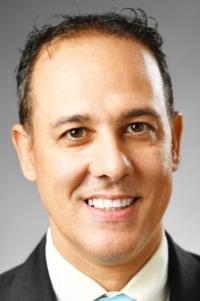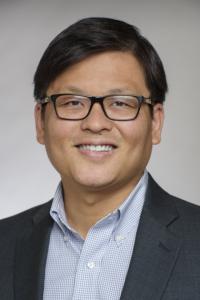Columbia Dental Student Wins Top Basic Science Award at National Research Symposium
Third-year Columbia University College of Dental Medicine student Harsh Chheda has been recognized with one of the nation’s top student research honors, earning the Most Outstanding Presentation in Basic Science Research at the 30th Hinman Student Research Symposium, held October 31–November 2 in Memphis, Tennessee. His
project, “Periodontal Ligament Regeneration with CRISPR Activation and Pluripotent Stem Cells,” was selected from among research presentations delivered by students representing dental schools across the United States and Canada.
Chheda, who is the president of the CDM chapter of ASDA, presented during the symposium’s Basic Science Oral Session, where he shared the results of a collaborative project conducted in the laboratories of Chang Lee, PhD, and Christopher Ricupero, PhD. The research explores an emerging approach for treating periodontal disease by using CRISPR activation (CRISPRa), an epigenetic tool that increases, rather than replaces, gene expression in order to stimulate key genes involved in periodontal ligament regeneration.
“What we’re trying to do is upregulate two genes—Mohawk and Scleraxis—because they play essential roles in regenerating periodontal ligament and other connective tissues,” Chheda says. “Instead of permanently altering the genome, CRISPR activation provides a temporary boost, similar to applying a gel or other topical therapy. The idea is that one day this could translate into a simple, non-invasive way to help patients with periodontal disease.”
“Working with human stem cells is no small challenge as they do not adhere to a normal weekly schedule,” says Ricupero, principal investigator in CDM’s Rare Diseases and Disorders Laboratory. “Harsh specifically took the time necessary to troubleshoot and redesign his experiments, leading to solid results."
For the project, Chheda worked with human induced pluripotent stem cells, performing cell culture, CRISPRa guide integration, nucleofection, and quantitative PCR analysis to measure gene expression changes. “I essentially carried out every stage of the experiment,” he says. “From culturing the cells to collecting the data, this was the first project where I saw a full arc of research from start to finish.”
Chheda’s involvement in research extends far beyond what is typical for dental students. Throughout his D1 and D2 years, he spent 10–15 hours a week in the lab—more during the summer—and often worked weekends to complete complex procedures.
“Harsh is highly ambitious about the research,” says Lee, CDM’s director of research and principal investigator of the Regenerative Engineering Laboratory. “He is very dedicated. I know his schedule must be difficult, especially now that he’s in clinic, but whenever he doesn’t have a patient, he’s willing to come and continue to contribute to the research.”
This is not the first award that Chheda has received for this research. Last spring, he was a recipient of an American Association for Dental, Oral, and Craniofacial Research (AADOCR) Student Research Fellowship.
“I’ve always loved research, leadership, and teaching,” he says. “Columbia has been the perfect environment to grow in all three.” He also tutors fellow students, and now mentors underclassmen joining the lab.
Chheda won 2025’s Birnberg Research Award for presenting an earlier stage of the same project. While Birnberg was a poster session, he particularly enjoyed the oral format at Hinman. “I love presenting,” he reflected. “The oral session—walking around with a mic, engaging directly with the audience—that’s where I feel most energized.”
The Hinman Symposium brings together one student from nearly every U.S. dental school, creating a national cohort of emerging dental researchers.
“It was amazing to meet students from across the country and see the breadth of research happening in dental schools,” Chheda says. His roommate was a student from NYU; other presentations ranged from periodontics to pain pathways, biomaterials, and oral cancer.
Outside the scientific sessions, he enjoyed exploring Memphis—for him, mostly the mac and cheese, since he’s vegetarian—before returning on Sunday for his award-winning presentation. “It was a great experience from start to finish. I wasn’t expecting to win, so hearing my name called was incredibly exciting.”
Now several months into his clinical experience, Chheda finds himself thinking often about how basic science research may translate to future treatments.
“So many patients have issues related to periodontal disease,” he says. “I can imagine a future where a therapy like ours becomes something simple that you apply chairside—a gel, a small injection, something temporary and safe that could help regenerate the periodontal ligament.”
Chheda plans to pursue orthodontics, continue conducting research, and eventually teach. “I want to innovate throughout my career,” he says. “Even small discoveries can make a real impact.”
For now, he is preparing additional data from a second project and hopes to present again at future conferences. After his success at Hinman, he is more motivated than ever.
“It reminded me why I love what I’m doing,” he said. “Research inspires me—it always has.”


